Life under military dictatorship
podcast: a colleague describes the situation in Yangon, Burma (Myanmar) on the second anniversary of a military coup
A family flees a conflict zone in Yangon. [Image source: Anonymous Facebook account.]
On the morning of February 2, 2021, the citizens of Burma (Myanmar) awoke to the news that overnight a military coup had taken over their country.
Three months earlier, in November 2020, country wide elections were held with the National League for Democracy (NLD) - the party of Aung San Suu Kyi - winning a landslide victory.
It was a humiliating defeat for the Union Solidarity and Development Party (USDP), the euphemistic name adopted by the autocratic military government that until 2011 ruled the country by outright force for decades.
During Burma’s recent “decade of liberalization,” beginning with Aung San Suu Kyi’s release from long-term house arrest in 2011, elections in 2012, 2015, and 2020 saw the NLD gain a super-majority of seats in the government.
Though some economic and civil society reforms were put in place that gestured in the general direction of democracy during this period, the military retained firm control over the country from the shadows.
After the NLD’s resounding victory in the 2020 elections, however, the military government decided to come from the background to the foreground and overtly impose authoritarian control on the population.
Street protests followed and when a bystander - a young woman - was shot in the street by junta police later in February, violence erupted.
Martial law was instituted in the cities of Burma. [Image source: Anonymous Facebook account.]
Over the past two years the people of Burma have suffered under a triple crisis:
First, the COVID pandemic swept the country. Burma’s public health infrastructure -inadequate in the cities, and virtually non-existent in rural and remote areas - is ranked among the worst in the world. The COVID crisis crescendoed during 2021, with the brutal Delta variant taking a heavy toll on the population.
Then, the military coup imposed martial law, violently suppressed protests, and destroyed or closed many of the independent clinics that had been set up to provide basic COVID treatment.
A man flees oncoming military police. [Image source: Anonymous Facebook account.]
And on top of COVID and the coup, inflation hit the country hard, increasing the cost of living by a factor of three or four. Banks were closed and withdrawals of cash were heavily restricted in effort to stop a run on the banks. Electricity provision became more erratic than usual. Obtaining medicines as basic a paracetamol (i.e., acetaminophen, commonly branded in the US as “Tylenol”) became cost-prohibitive for many people.
Many groups of professionals who worked in government jobs - e.g., doctors, nurses, school teachers, engineers - went on strike against the coup as part of the nonviolent Civil Disobedience Movement (CDM). However, doctors who set up private clinics to provide basic medical care for COVID, injuries, and other diseases have been arrested or forced to work in hospitals run by the military government.
Protestors attempt to get an injured person to safety and medical care. [Image source: Anonymous Facebook account.]
Protestors, members of the professional classes taking part in the CDM, members of the NLD opposition party, and others including foreign journalists and documentarians have been arrested, interrogated/tortured, tried behind closed doors, and given lengthy prison sentences. The Assistance Association for Political Prisoners - Burma estimates (as of late January 2023) that nearly 17,500 people have been arrested, and nearly 3,000 people have been killed by the military regime.
Police fire “less lethal” rubber bullets as well as conventional ammunition at protestors. [Image source: Anonymous Facebook account.]
Protesting youth face down the military police with rudimentary materials used for weapons and shields. [Image source: Anonymous Facebook account.]
To gain a sense of what life has been like in Burma’s former capital and largest city, Yangon, over the past two years, we speak with “Romeo” - a pseudonymous young woman living under the coup regime and working to support resistance and relief efforts.
If you are moved to donate to grassroots resistance efforts in Burma, contact me through this substack. We have a way of channeling bundled donations to Romeo and her colleagues through a Thai bank account.
For up-to-date news on life under the coup regime in Burma, see Radio Free Asia, The Irrawaddy, the Democratic Voice of Burma, and Myanmar NOW.
[Image source: Anonymous Facebook account.]
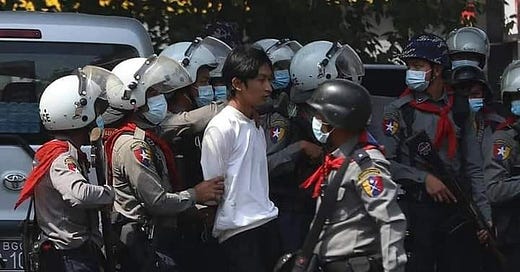



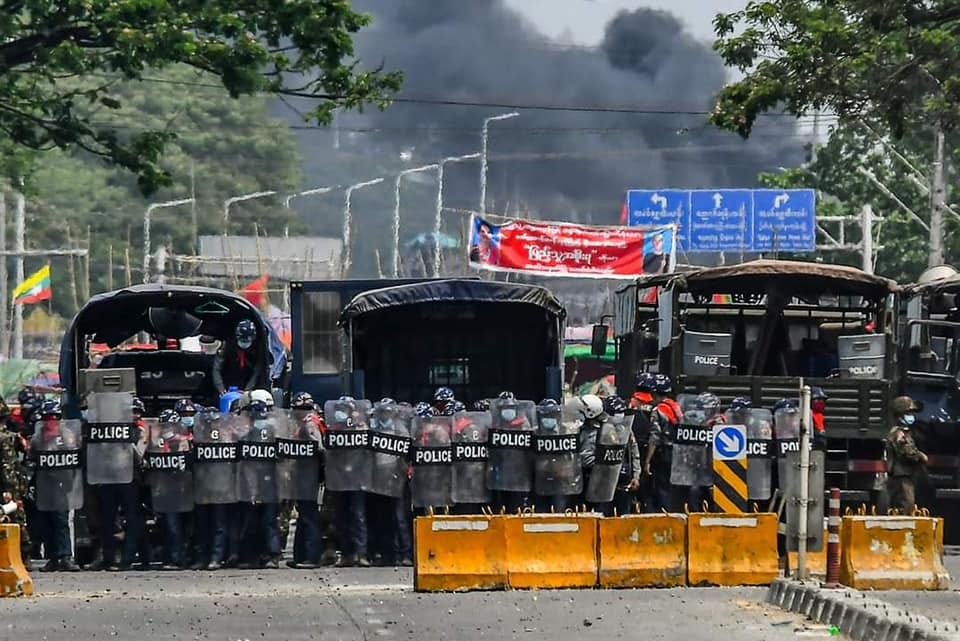
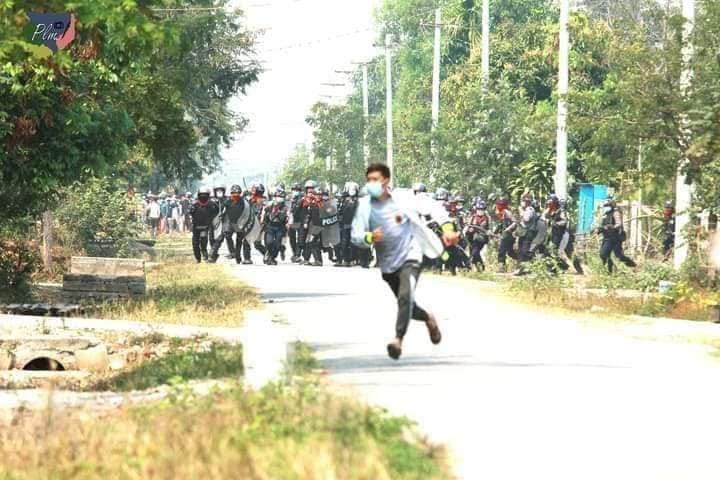
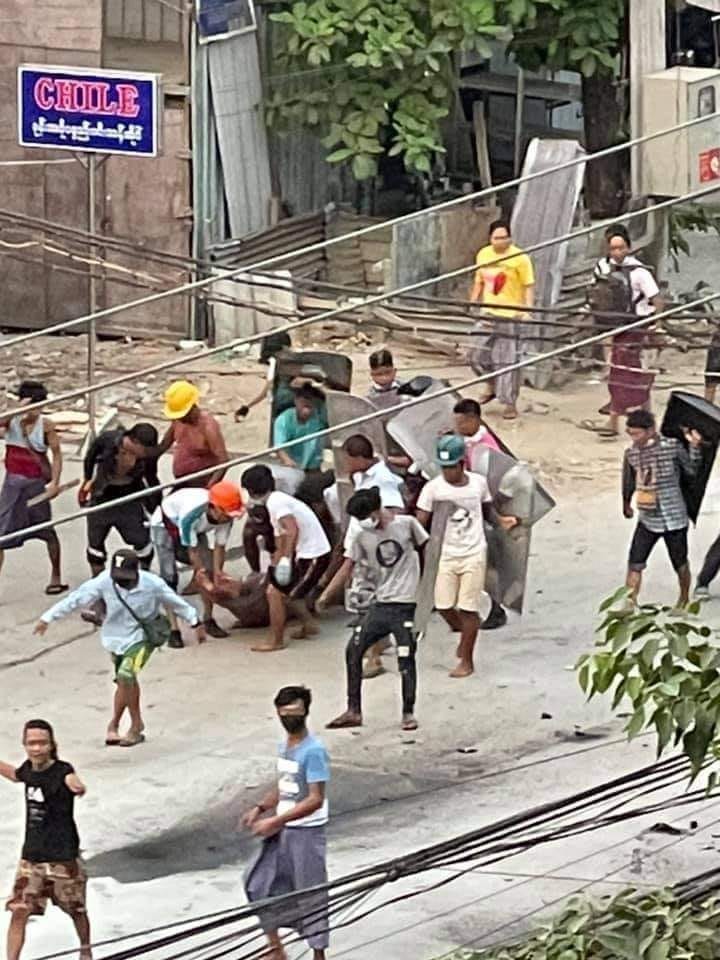
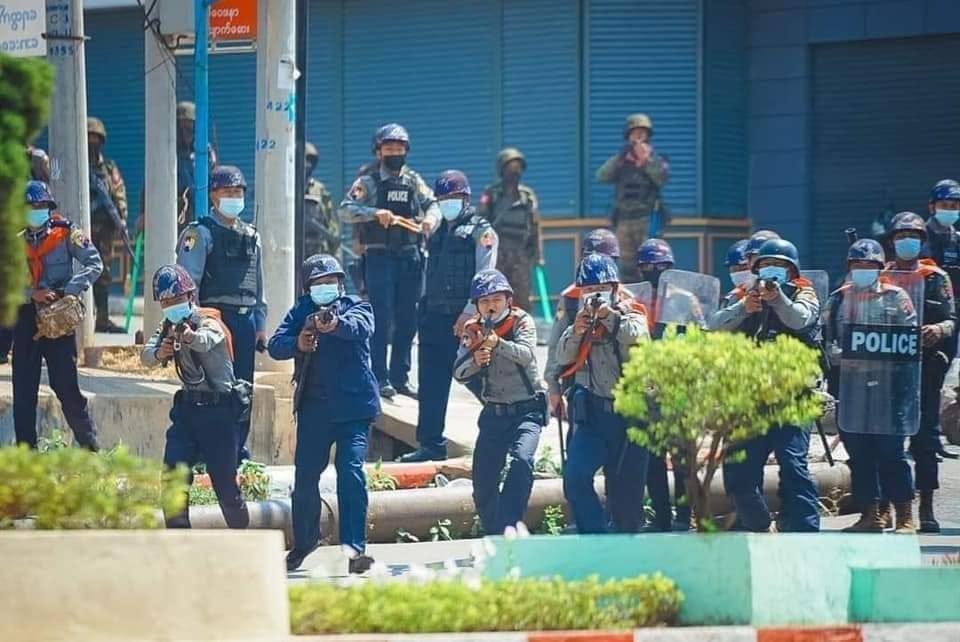
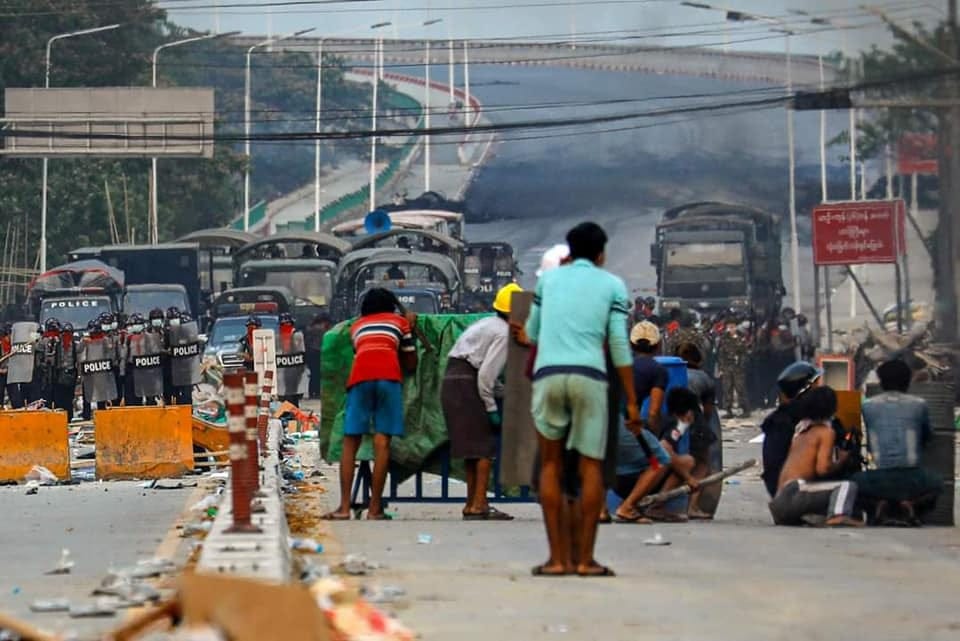
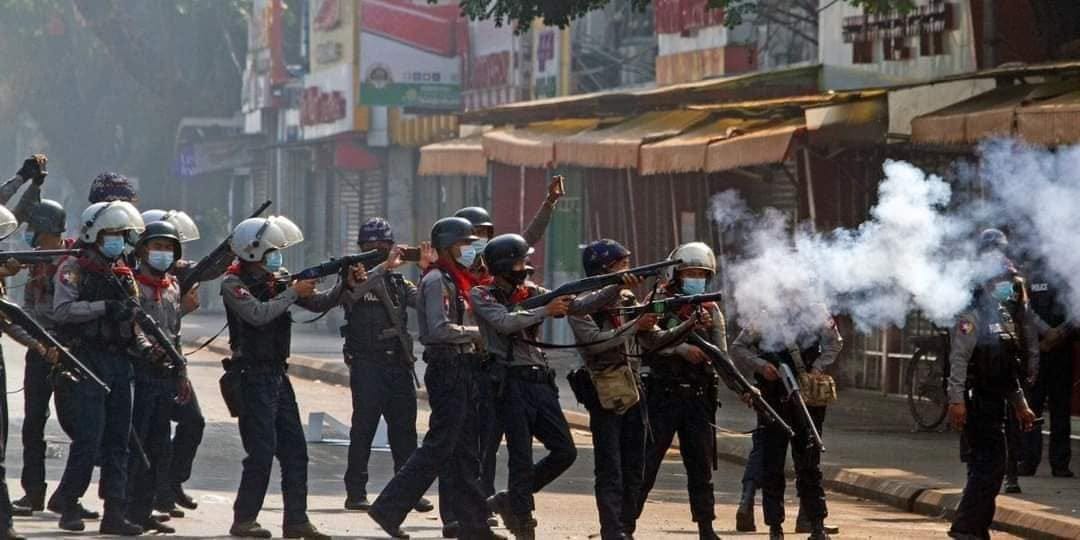
Thanks for posting this. Apart from when the coup first happened it’s hardly been mentioned in mainstream international news.